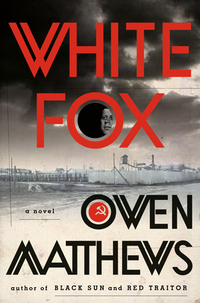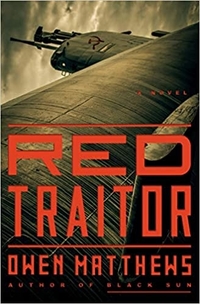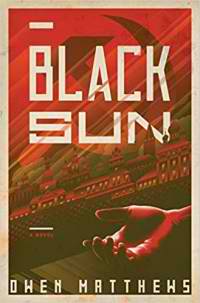White Fox by Owen Matthews
 Wednesday, March 1, 2023 at 5:47AM
Wednesday, March 1, 2023 at 5:47AM 
Published by Doubleday on March 7, 2023
Writers regularly turn out novels that offer a fictional explanation for Kennedy’s assassination. White Fox is the latest. It is the third in a series of books that feature Alexander Vasin as the central character. The novels follow an arc but each tells a self-contained story.
Vasin was a homicide investigator who became a KGB agent. Because he burned some bridges to uncover a spy in the last novel, General Orlov, his boss in the KGB’s Special Cases Department, placed Vasin in charge of a penal colony in the far North of Russia. The prison is very cold and the prisoners, particularly a gang of Serbs, are ruthless. Vasin knows that he is being punished. The punishment is unfair, but Vasin does not expect fairness in the Soviet Union.
Orlov sends Vasin a “special prisoner.” The prisoner is to be kept alive at all costs. The two men escorting him are to be eliminated. The prisoner’s file identifies him as Lazar Berezovsky, but that isn’t his real name. Berezovsky’s life is in danger because he knows about KGB involvement in the Kennedy assassination. Berezovsky has stashed a file with documents that identify the KGB officers who participated in the conspiracy. Orlov wants that file to gain power over his enemies, including a major in a different department of the KGB who wants Berezovsky to die so that his knowledge will be buried.
Vasin uses his wits rather than his fists to survive, but the story becomes an action novel after a riot sends Vasin fleeing from the prison, keeping Berezovsky and a couple of loyal prison guards at his side. Vasin wants to deliver Berezovsky to Brezhnev (the anticipated successor to Khrushchev) so the government will learn about the KGB’s world-changing shenanigans.
Vasin hopes to intercept a train carrying reinforcements to the prison, but the tracks are buried in deep snow and they must stay alive through unsheltered Arctic nights. They must also avoid the Serbian prisoners who are tracking them. Vasin does not know that two of the KGB major’s men are on the train with orders to kill Berezovsky.
Berezovksy, on the other hand, hopes to escape to a country where nobody wants to kill him. With KGB training, Berezovsky has skills that make it difficult for Vasin to hold him captive. The story involves multiple chases that unfold in realistic detail, sometimes with the help of Roma kids who are organized into a criminal gang.
White Fox creates waves of danger and suspense without relying on James Bond stunts or Dwayne “The Rock” Johnson’s wrestling moves. Vasin is noteworthy because he’s a smart and principled character, albeit one who needs flexible principles to stay alive. His plans to find Berezovsky and his hidden documents are clever, but sometimes Berezovsky is more clever. The chess match that ensues makes White Fox more interesting than a typical tough guy thriller.
The ending is a surprise. I’m not sure whether it leaves room for another chapter in Vasin’s story, but I hope Owen Matthews writes another one.
RECOMMENDED

